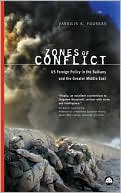
“Who are you?” the late Colonel Gaddafi once rhetorically asked in a public address in late 2011, just before the end of his reign, questioning the authority of those trying to over-throw his regime, calling them extremists, agents of western imperialism, rats and drug-addicts. He was laughed at, caricatured, mocked and ceaselessly demonized. We all joined in and laughed, he died. But the bloody joke is on all of us now: Gaddafi knew what he was talking about. He blamed the Libyan rebels of being influenced by Al-Qaeda’s fundamentalist ideology, but no one had taken his word for it, not even a little bit. Why should we have? After all, wasn’t he a brutal dictator hell-bent on massacring half of the population in Libya? At least that’s what we got from the main stream media here. Just before he himself was killed brutally, Gaddafi called his opponents as drug-addicted, Islamic fundamentalists. We know them as ISIS, it doesn’t seem much of a joke now, does it?
The killing of Gaddafi on 20 October 2011, by an armed lynch mob and the victory of the rebel forces were quickly celebrated by the United States President Barack Obama and other leaders of the North Atlantic Treaty Organisation countries, whose warplanes bombed the cities of Libya over the past eight months – under the guise of “protecting civilians”. After he was killed, his opponents splayed his body on the hood of a car – pulling his hair and banging his head before dragging his body into the street, kicking him like a football and displaying his corpse in a shopping centre meat locker. That was the indelible image of the new “free” Libya under the control of US/NATO-sponsored rebel forces.
Most of the mainstream media in the west provided voluminous coverage of the savage murder of former Libyan leader, presenting this gruesome incident as a big victory for Libyan people and the triumph of democracy over tyranny! The manner in which Gaddafi was killed has, though, been considered by many in Africa to be a return to what they called the dark days of colonialism and slavery – where captured victims were treated with disrespect in a dehumanising manner. A video circulating widely across the internet shows a bloodied and somewhat disoriented Gaddafi being pulled and pushed about by a large and cacophonous rebel contingency. And a still image from the disorderly scene captures the grimace on his face and the handgun that would put a bullet through his temple. Despite the erupting euphoria and self-congratulation in the west, the anarchic bloodshed that followed the toppling of Gaddafi had left many fearing for what happens next. Proponents of “Humanitarian Intervention” must be patting themselves on the back now. Libya has accomplished its “democratic” transition from a country with the highest standard of living in Africa under Gaddafi’s rule into a typical definition of a totally failed state, a wilderness of religious fundamentalism, internal bloodletting and wholesale head-chopping. But perhaps we shouldn’t talk about these direct consequences of the 2011 military intervention against Muammar Gaddafi, with the fear of being accused of playing a “distasteful political point-scoring blame game”.



